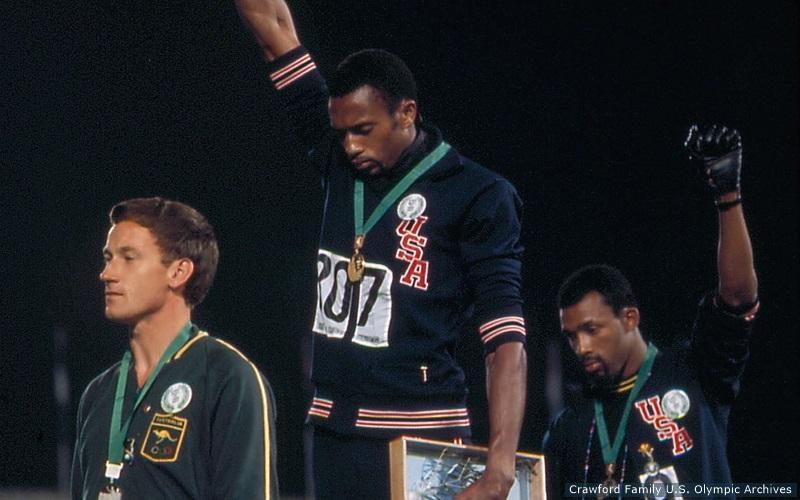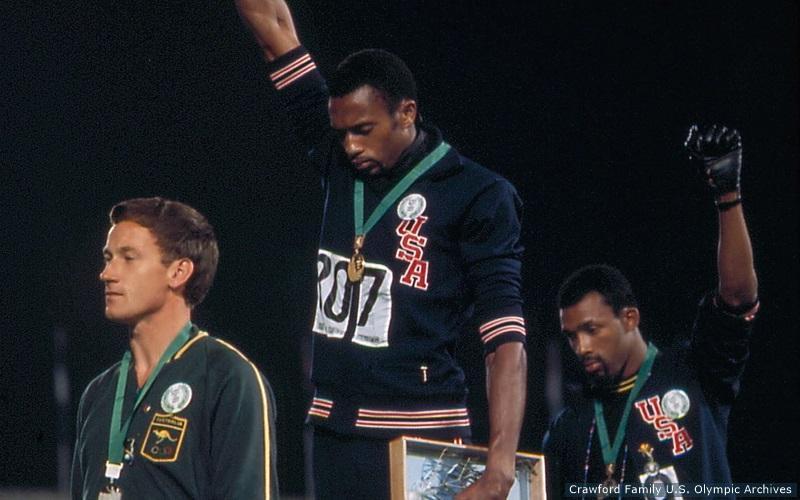[ad_1]
By Mark F. Gray, Special to the AFRO
For over 50 years Black athletes have been despised and revered for taking a stance – or these days a knee – to express their displeasure in a civil disobedient way. From the generations that span Muhammad Ali to Colin Kaepernick, athletes who chose to stand for their beliefs and represent those without a platform or a voice continue to pay the ultimate price financially and to their careers.
“Activism and Athletes” was the tip-off to the 2018 Slaughter Symposium at the University of Maryland. The panel discussions, sponsored by the University’s Black Student Union, featured journalists, broadcasters and scholars at the College Park campus for a day of reflecting on the tumultuous times of 1968- when the Kerner Commission released its civil rights report during one of the most significant years of the 20th Century.

In March of 1968 the Kerner Commission revealed that despite the perception of “Negroes” as the demise of urban America, it was institutional racism that was at the core of the socio-economic divide in the nation. Among its findings were that bad policing and a flawed justice system combined with high unemployment, voter suppression and racial discrimination were among the causes of violence in African-American communities.
However, 1968 was also the year that Dr. Martin Luther King Jr. and then Attorney General Robert Kennedy were assassinated. Richard Nixon was elected to his first term as President and Black athletes were becoming visible activists for social change in America, in many cases, to their own peril. As is the case with Kapernick and was for Ali, a public anti-patriotic demonstration pause an athlete’s career indefinitely.
“I think you see a great deal of repeating of what happened in 1968,” sports journalist and author Dave Zirin told the AFRO. “You’re seeing now with athletes discovering how powerful the platform of sports can be as well as how powerful the backlash is as it was in 1968.”
That year was also an Olympic year where athletes such as Lew Alcindor, who would later become Kareem Abdul-Jabbar, expressed their defiance by not participating in the Mexico City games. However, track athletes John Carlos and Tommie Smith did. Carlos and Smith won gold and bronze medals in the 400 meters then went to the medal podium and stood with leather gloves and fists in the air during the national anthem in a show of Black pride. They were immediately dismissed from the U.S. team and ushered out of the Olympic village.
The tales of Carlos and Smith standing for civil rights on an international stage and being ostracized presents a historic parallel to the saga of Kaepernick who has been shunned by the NFL for not standing during the national anthem. These two moments – though separated by nearly a half century – resonated with the audience because many have seen that fame and notoriety can be fleeting when athletes are standing for social issues whether a baby boomer or millennial.
“One thing we know about Carlos and Smith, they had an organization – the Olympic Project for Human Rights,” said ESPN commentator and University of Maryland Professor Kevin Blackistone. “Kapernick started his organization, Know Your Rights, which has become an iconic symbol around the world but what gains have really come from it?”
Washington Mystics guard Natasha Cloud admonished the NCAA for being “one of the most corrupt organizations” in sports for the treatment of student athletes while broadcaster Kelsey Nelson spoke of the sexism that still exists in sports journalism towards women.
“Looking back at 1968 we want to have a collective consciousness,” said Dr. Robert W. Turner, Assistant Professor at George Washington University and former NFL Player.
[ad_2]
Source link


